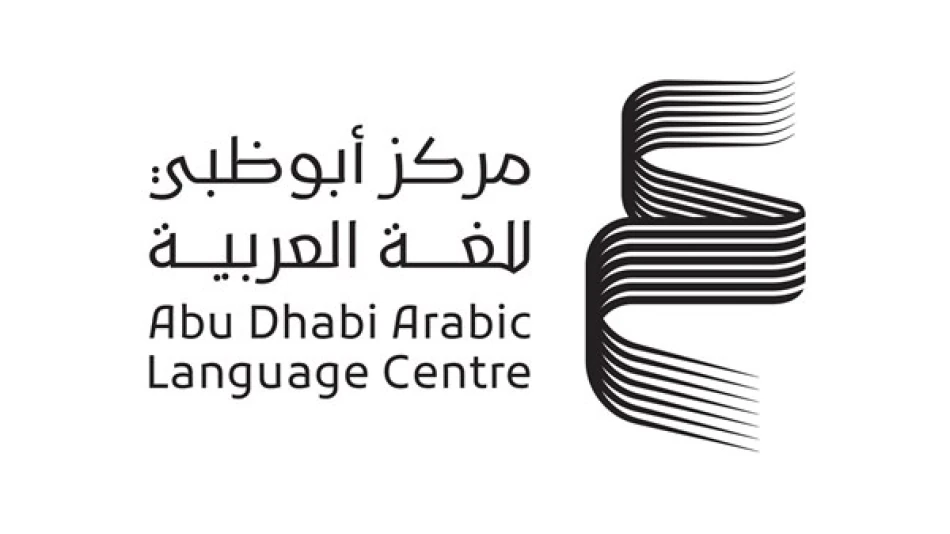
The UAE Boosts Global Reach of "Dhaad Language" Through Artificial Intelligence
UAE Emerges as Global Pioneer in AI-Powered Arabic Language Preservation
The United Arab Emirates is positioning itself as a world leader in leveraging artificial intelligence to digitize and preserve Arabic language heritage, launching ambitious projects that could reshape how one of the world's most historically significant languages adapts to the digital age. Through strategic AI integration across educational, cultural, and research institutions, the UAE is creating a comprehensive ecosystem that serves over 400 million Arabic speakers globally while establishing new standards for language preservation technology.
Sharjah's Historic Dictionary Project Sets New AI Standards
The emirate of Sharjah, designated as the "Capital of Arab Culture," completed a groundbreaking Historical Dictionary of Arabic Language project that represents a quantum leap in linguistic documentation. The initiative culminated in the launch of "GPT Historical Dictionary of Arabic Language," which harnesses cutting-edge AI innovations to serve and disseminate the language worldwide.
This AI-powered platform provides researchers and enthusiasts access to over 20 million Arabic words, featuring advanced capabilities including text composition, reading, and video conversion. The system continuously updates its database through collaboration between the Arabic Language Academy in Sharjah and the UAE Researchers Center for Research and Studies, creating a living repository that evolves with contemporary usage.
Dubai's Knowledge Foundation Scales Digital Arabic Content
The Mohammed bin Rashid Al Maktoum Knowledge Foundation has emerged as a major force in promoting Arabic digital culture through its Digital Knowledge Center. This comprehensive Arabic platform focuses on producing, collecting, and organizing digital informational content within an integrated framework.
The scale of this operation is impressive: in the past year alone, the center's content exceeded 800,000 titles and 8.5 million digital materials across more than 18 specialized libraries covering diverse academic, intellectual, and scientific fields. This positions the UAE as a major content hub for Arabic speakers seeking digital resources.
Abu Dhabi Launches AI-Native Language Tools
Revolutionary Bilingual Dictionary Technology
The Abu Dhabi Arabic Language Center, under the Department of Culture and Tourism, has implemented several AI-driven initiatives that demonstrate practical applications of machine learning in language services. Their flagship "Digital Meanings Guide Dictionary" represents the first comprehensive Arabic-English dictionary to fully integrate artificial intelligence and computational linguistics.
Containing over 7,000 entries covering the majority of contemporary Arabic vocabulary, the dictionary specifically targets non-native speakers with advanced features including automated pronunciation, simplified definitions, illustrative examples, and images. The platform's technical flexibility allows continuous development and updates, making it a dynamic educational tool that keeps pace with linguistic evolution.
Audio Content and Poetry Analysis Innovations
The center's "AI-Powered Audiobook" project converts written texts into high-quality audio content using machine learning techniques, addressing the growing demand for accessible Arabic content. More uniquely, their "Poetic Intelligence Laboratory" provides digital tools for young poets, teachers, and students to linguistically and metrically adjust poetic texts, improve vocalization, and verify language accuracy and rhythm.
In collaboration with New York University Abu Dhabi and Zayed University, the center launched the "Balanced Arabic Corpus for Readability - Bareq" project, aiming to collect a linguistic corpus of 10 million words spanning diverse literary genres and topics.
Educational Institutions Drive AI Integration
UAE universities are actively participating in Arabic language AI development. Zayed University launched the "Zay" digital platform to enhance Arabic language education through innovative tools and resources supporting teachers, students, and researchers. More significantly, Mohamed bin Zayed University of Artificial Intelligence co-launched the "Jais" model, described as the world's most advanced Arabic-language large language model.
The Jais model's impact extends far beyond the UAE, enabling over 400 million Arabic speakers worldwide to benefit from generative artificial intelligence capabilities in their native language.
Strategic Implications for Global Language Technology
The UAE's comprehensive approach to AI-powered language preservation offers a blueprint that other nations with rich linguistic traditions could emulate. Unlike previous digitization efforts that simply converted analog content to digital formats, these initiatives create interactive, evolving platforms that adapt to contemporary usage while preserving historical depth.
For the global AI industry, the UAE's Arabic language projects represent a significant market opportunity. Arabic's complex grammar, right-to-left script, and rich morphological structure present unique technical challenges that, once solved, could accelerate AI development for other Semitic languages and complex linguistic systems.
The UAE's investment in Arabic AI positions the country as an essential partner for international tech companies seeking to serve Middle Eastern and North African markets effectively. As governments worldwide grapple with preserving cultural heritage in the digital age, the UAE's model demonstrates how strategic AI implementation can strengthen rather than threaten linguistic traditions.
Most Viewed News

 Layla Al Mansoori
Layla Al Mansoori






